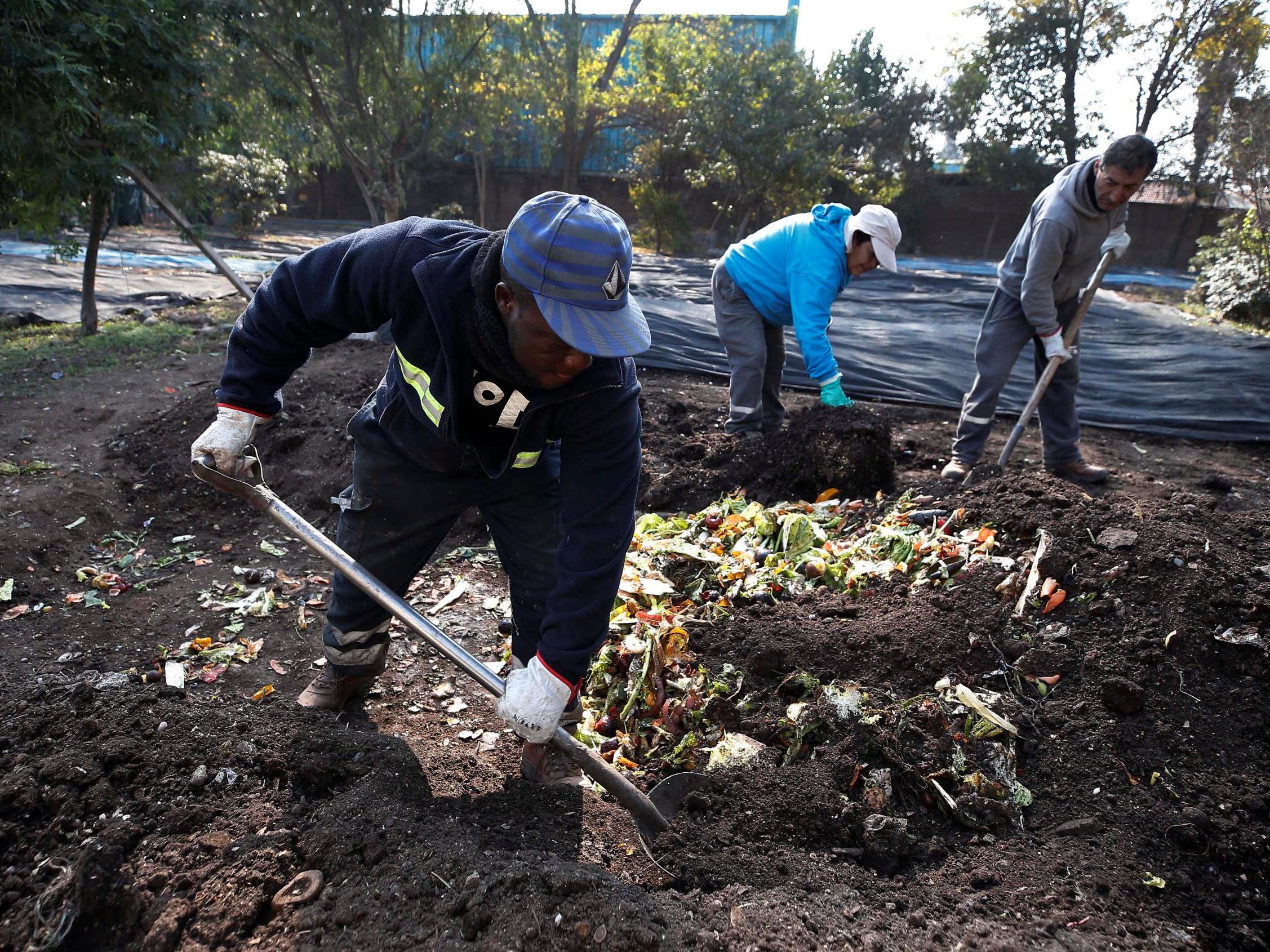Impoverished Chilean neighbourhood’s pioneering waste recycling scheme unites community
'There is no one who has done this with the level of penetration and perfection that La Pintana has – it’s surprising that other municipalities have not copied it'

La Pintana, an impoverished Chilean neighbourhood plagued by crime, is an unlikely place to find a green revolution.
But the area on the outskirts of capital city Santiago is blazing a trail in recycling its waste.
Residents like Marina Ortiz listen out for the regular sound of the community recycling truck. Standing by her door, she rushes out into the street, bringing her food waste to the collectors.
“When I cook I separate out the remains of the vegetables. The paper and cardboard I give to the collectors, and the food to the vegetables truck,” the 58-year-old housewife said.
“The people from the municipality taught us and I’ve been doing it for years. They tell me that later all the waste is turned into earth.”
The municipality of La Pintana now collects 140 tons of plant waste from homes every week, far higher than comparable neighbourhoods.
That is despite the area having some of the worst socio-economic indicators in Chile.
There are few medical centres and almost no companies or major employers. The news that comes from the area is almost always related to drug trafficking, delinquency and violence.
The poverty rate – at around 42 per cent of the 177,000 inhabitants – is far above the national 17% average, a legacy of the area receiving poor families displaced from other richer parts of the capital during the 1973-1990 military dictatorship.
“The people of La Pintana have been treated harshly by the state, with no services, no health facilities, no education. There are children in the street, crimes, a lot of inequality,” La Pintana mayor Claudia Pizarro told Reuters.
“But this is one of the good things that exist in the community, and we’re a pioneer in this area. We have made efforts to be recognised as a community that takes care of the environment,” she added.
Chile, already an environmental leader in Latin America for its use of renewable energy and creation of national parks, is looking to roll out further initiatives as it gears up to host the major COP25 global conference on climate change in December.
These include reducing consumption of single-use plastics, trying to cut emissions and increasing the recycling rate. The environment ministry has recently set targets for the recycling of paper, plastics and glass.
La Pintana, however, remains a stand-out case.
“There is no one who has done this with the level of penetration and perfection that La Pintana has,” said Gonzalo Muñoz, an environmental “champion” for the COP25 in Chile.
“It’s surprising that other municipalities have not copied it.”
The process has an economic as well as an environmental benefit, since it reduces the amount of garbage residents send to the landfill, which charges to receive it.

“We started in 2005 looking for a way to generate savings to reduce our spending on waste management,” said Felipe Marchant, head of La Pintana’s environmental management division.
“It’s the biggest financial burden of the municipalities.”
Carol Valdebenito, an engineer who has worked as an environmental educator in the area for seven years, said it also brought the community together.
“The neighbours not only talk to us about environmental things, but about social issues, their problems and concerns,” she told Reuters as she walked alongside the green recycling truck through pot-holed streets roamed by groups of stray dogs.
The trucks deposit the waste at a composting and vermiculture plant, where the garbage slowly transforms into piles of dark earth with a musty odour, full of long, pink worms that do a lot of the work processing the waste.
This becomes fertiliser for the nearby municipal nursery, where trees are grown for the green areas of the community. The nursery also researches which species adapt best to climate change and dry weather.
“That is the basic concept of what is called the circular economy,” said Mr Marchant.
Reuters
Join our commenting forum
Join thought-provoking conversations, follow other Independent readers and see their replies
Comments
Bookmark popover
Removed from bookmarks